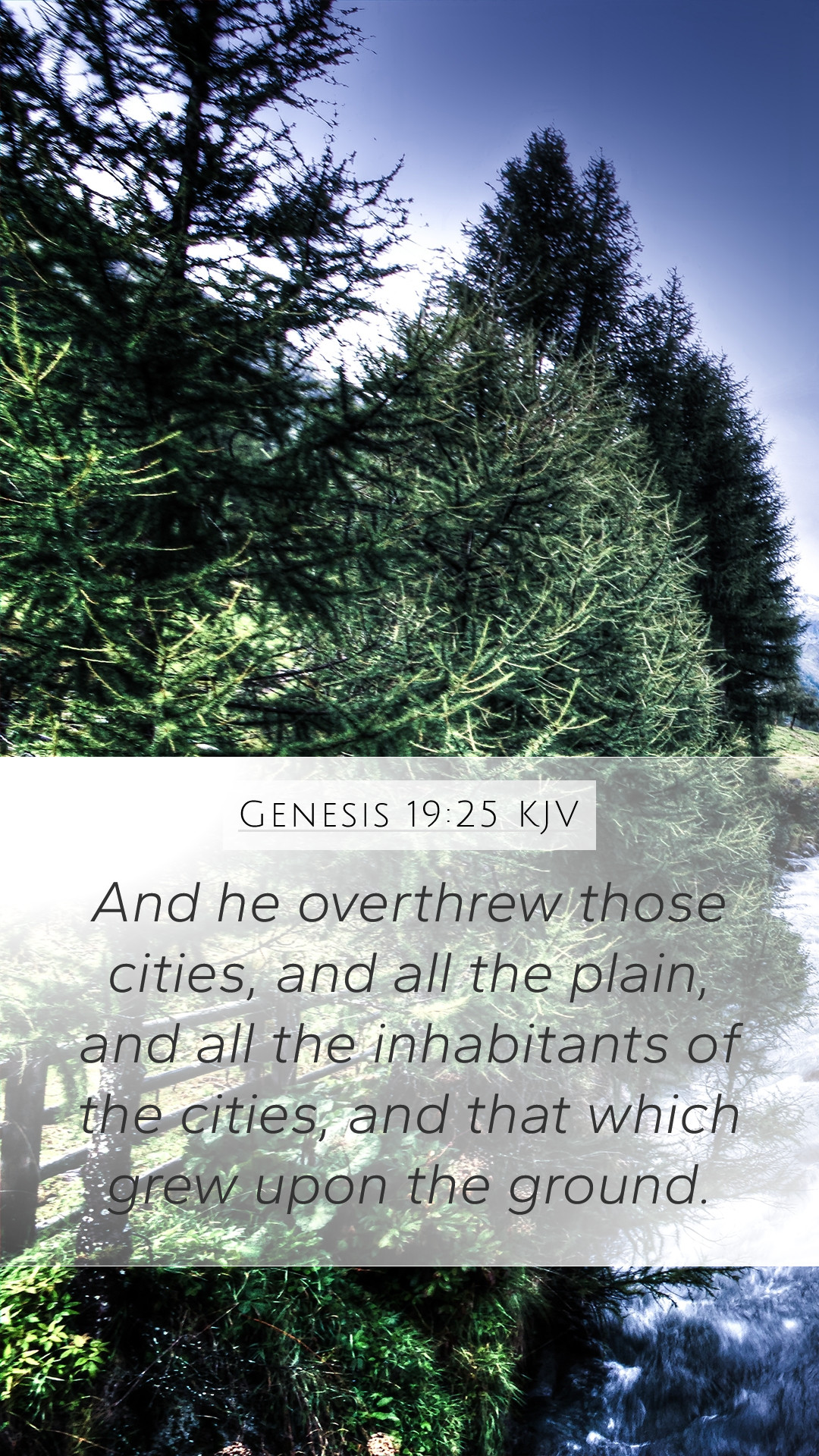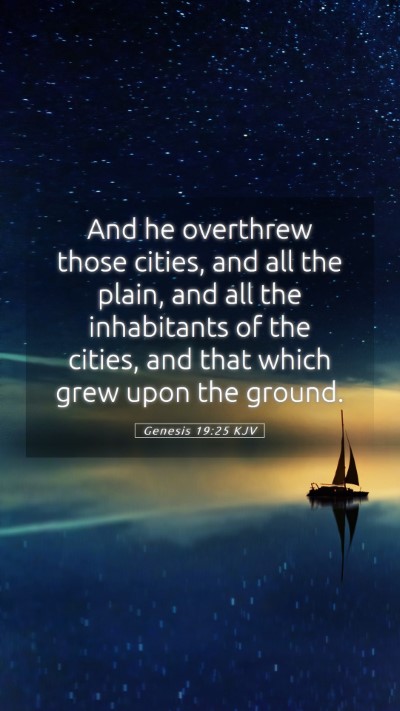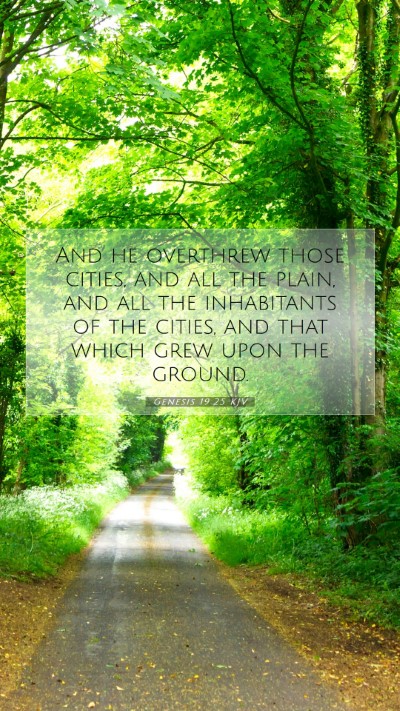Understanding Genesis 19:25
Verse: “And he overthrew those cities, and all the plain, and all the inhabitants of the cities, and that which grew upon the ground.” (Genesis 19:25)
This verse captures the dramatic destruction of the cities of Sodom and Gomorrah, which serves as a reminder of divine judgment against sin and immorality. The destruction of these cities illustrates important themes within Scripture regarding justice, mercy, and the consequences of collective iniquity.
Biblical Exegesis and Commentary
1. Matthew Henry's Commentary
According to Matthew Henry, this passage highlights God's righteous judgment. He emphasizes the totality of the destruction of Sodom and Gomorrah, indicating that no remains of the cities were left, and this emphasizes the severity of God’s wrath against sin. Henry points out that this event not only serves as a historical reference but also as an enduring moral lesson for humanity.
2. Albert Barnes' Notes
Albert Barnes expands on the implications of this destruction, stating that the annihilation of the inhabitants and the land teaches us about the nature of divine justice. He notes that this act was not arbitrary but rather a direct response to the wickedness that had permeated Sodom and Gomorrah. Barnes also urges readers to seek understanding of God’s mercy in the midst of judgment, as evident in the deliverance of Lot.
3. Adam Clarke's Commentary
In Clarke’s analysis, he focuses on the historical context of the destruction. He discusses geographic elements, suggesting that the plains were fertile lands, showcasing the enormity of the loss. Clarke makes connections to the nature of idolatry and moral corruption that pervaded these cities, stressing that the judgment was necessary for the preservation of righteousness elsewhere.
Key Themes and Insights
- Divine Judgment: The swift and total destruction of the cities illustrates God's serious stance against sin.
- Grace and Mercy: Lot's escape serves as a contrast, showing that even amidst judgment, God's grace can be present.
- Historical Context: Understanding the geographical and cultural background enhances our interpretation of the punishment described.
Application and Reflections
This verse raises profound questions about morality, justice, and the human condition. For Bible study groups, this passage can inspire discussions around the nature of sin and divine expectations from humanity. Understanding Genesis 19:25 invites personal reflection on moral choices and the societal implications of collective behavior.
Believers can apply the lessons from this verse to daily life, urging a careful examination of personal and communal ethics, while maintaining hope in God’s mercy.
Cross References
- Genesis 18:20-21: The outcry against Sodom and Gomorrah.
- 2 Peter 2:6-9: A New Testament reflection on the destruction of Sodom and its significance.
- Luke 17:29: Jesus refers to the destruction of Sodom to illustrate the coming judgment.


